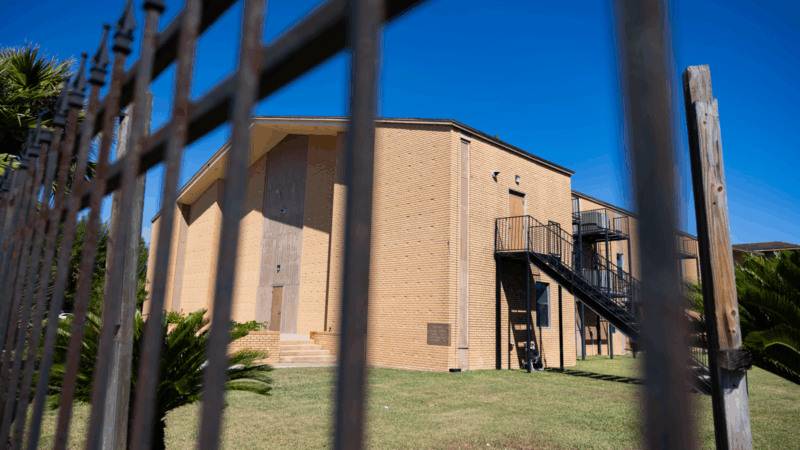Moldova’s pro-EU party wins clear parliamentary majority, defeating pro-Russian groups
CHISINAU, Moldova — Moldova’s pro-Western governing party won a clear parliamentary majority, defeating pro-Russian groups in an election that was widely viewed as a stark choice between East and West.
With nearly all polling station reports counted on Monday, electoral data showed the pro-EU Party of Action and Solidarity, or PAS, had 50.1% of the vote, while the pro-Russian Patriotic Electoral Bloc has 24.2%. The Russia-friendly Alternativa Bloc came third, followed by the populist Our Party. The right-wing Democracy at Home party also won enough votes to enter parliament.
The tense ballot Sunday pitted the governing PAS against several Russia-friendly opponents but no viable pro-European partners. Electoral data indicate the party will hold a clear majority of about 55 of the 101 seats in the legislature.
It is likely that President Maia Sandu, who founded PAS in 2016, will opt for some continuity by nominating pro-Western Prime Minister Dorin Recean, an economist who has steered Moldova’s government through multiple crises since 2023. Recean has also previously served as Sandu’s defense and security adviser.
The election was widely viewed as a geopolitical choice for Moldovans: between a path to the European Union or a drift back into Moscow’s fold.
Cristian Cantir, a Moldovan associate professor of international relations at Oakland University, told The Associated Press that PAS’s victory is “a clear win for pro-European forces in Moldova, which will be able to ensure continuity in the next few years in the pursuit of their ultimate goal of EU integration.”
“A PAS majority saves the party from having to form a coalition that would have most likely been unstable and would have slowed down the pace of reforms to join the EU,” he said, adding that “Moldova will continue to be in a difficult geopolitical environment characterized by Russia’s attempts to pull it back into its sphere of influence.”
The outcome of Sunday’s high-stakes ballot was noteworthy considering Moldovan authorities’ repeated claims that Russia was conducting a vast “hybrid war” to try to sway the outcome. Moldova applied to join the EU in 2022 in the wake of Russia’s full-scale invasion of Ukraine, and was granted candidate status that year. Brussels agreed to open accession negotiations last year.
The alleged Russian schemes included orchestrating a large-scale vote-buying scheme, conducting more than 1,000 cyberattacks on critical government infrastructure so far this year, a plan to incite riots around Sunday’s election, and a sprawling disinformation campaign online to sway voters.
In an interview with the AP, days before the vote, PAS leader Igor Grosu also warned of Russian interference, and said Sunday’s results would define the country’s future “not just for the next four years, but for many, many years ahead.”
“But I believe in the determination and mobilization spirit of Moldovans, at home and in the diaspora,” he said.
Election day was dogged by a string of incidents, ranging from bomb threats at multiple polling stations abroad to cyberattacks on electoral and government infrastructure, voters photographing their ballots and some being illegally transported to polling stations. Three people were also detained, suspected of plotting to cause unrest after the vote.
PAS campaigned on a pledge to continue Moldova’s path toward EU membership by signing an accession treaty to the 27-nation bloc by 2028, doubling incomes, modernizing infrastructure, and fighting corruption.
After a legislative election, Moldova’s president nominates a prime minister, generally from the leading party or bloc, which can then try to form a new government. A proposed government then needs parliamentary approval.
Some 1.6 million people, or about 52.1% of eligible voters cast ballots, according to the Central Electoral Commission, with 280,000 of them coming from votes in polling stations set up abroad.
Pregnant migrant girls are being sent to a Texas shelter flagged as medically risky
Government officials and advocates for the children worry the goal is to concentrate them in Texas, where abortion is banned.
The 2026 World Cup faces big challenges with only 100 days to go
Will Iran compete? Will violence in Mexico flare up? And what about funding for host cities in the U.S.? With only 100 days left before it beings, the 2026 World Cup in North America is facing a lot of uncertainty.
A glimpse of Iran, through the eyes of its artists and journalists
Understanding one of the world's oldest civilizations can't be achieved through a single film or book. But recent works of literature, journalism, music and film by Iranians are a powerful starting point.
Mitski comes undone
She may be indie rock's queen of precisely rendered emotion, but on Mitski's latest album, Nothing's About to Happen to Me, warped perspectives, questionable motives and possible hauntings abound.
This quiet epic is the top-grossing Japanese live action film of all time
The Oscar-nominated Kokuho tells a compelling story about friendship, the weight of history and the torturous road to becoming a star in Japan's Kabuki theater.
The Live Nation trial could reshape the music industry. Here’s what you need to know
On Tuesday opening statements will begin for the federal antitrust trial against Live Nation, one of the largest entertainment companies in the world.








